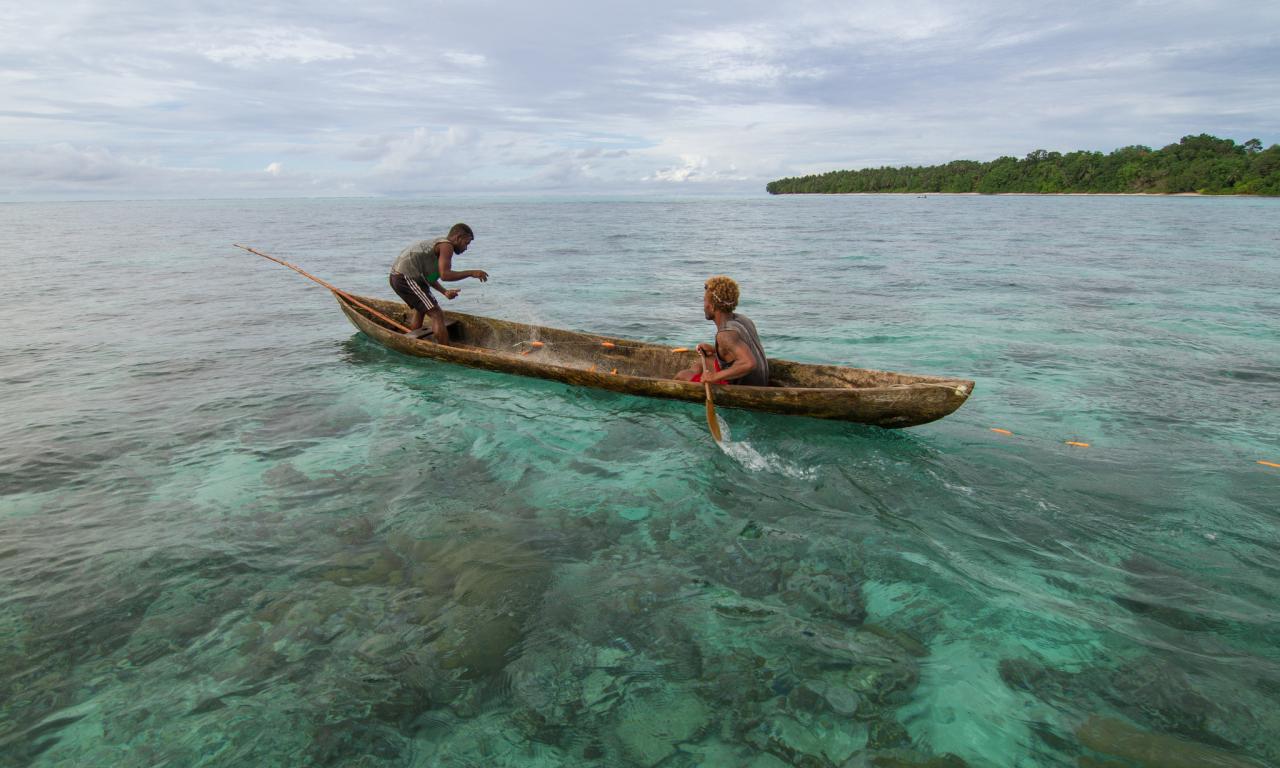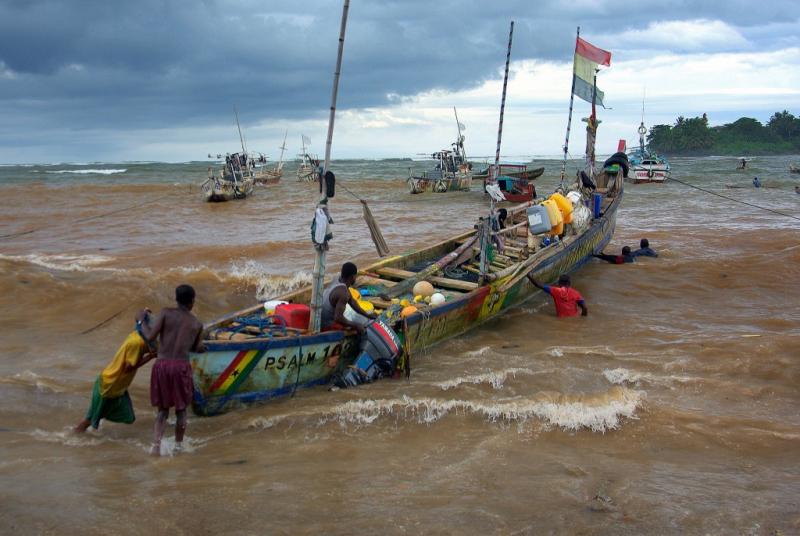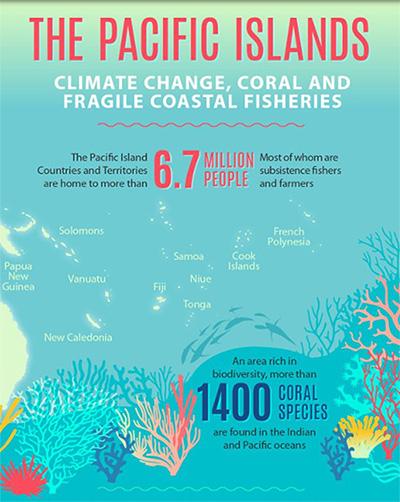
World Oceans Day, held on 8 June every year, is a day to celebrate our oceans—and to recommit ourselves to protecting them.
Recommended publications
- Contagious exploitation of marine resources
- Fish to 2050 in the ASEAN region
World Oceans Day, held on 8 June every year, is a day to celebrate our oceans—and to recommit ourselves to protecting them.
The bounty of our oceans
The health of the oceans is intimately linked to the health of humanity.
Oceans help to regulate weather and climate, generate oxygen, and absorb around 30 percent of the carbon dioxide produced by our global economy, moderating the pace of global warming.
Over 3 billion people depend on marine and coastal biodiversity for their livelihoods. Marine fisheries directly or indirectly employ over 200 million people, the vast majority of them in developing economies.

Fish provides more than 3 billion people(Download Below) with almost 20 percent of their average per capita intake of animal protein. While aquaculture is expanding rapidly, capture fisheries will continue to supply most of the fish consumed in much of the developing world in the coming decades.
In meeting the challenge of future food and nutrition security, the oceans—covering three quarters of the earth’s surface and accounting for 97 percent of the planet’s water—have a vital role to play. As the constraints on land and freshwater intensify, more and more effort will necessarily turn towards the sea.
The threats to our oceans
Yet despite their importance, our oceans—and the benefits they provide—are under severe threat.
Globally, fisheries are over-harvested. A 2015 study by WorldFish and the Stockholm Resilience Centre found that in today’s globalized world, where distant sources of supply are tapped to feed demand in fast-growing economies, fish stocks are being exploited so rapidly that overfishing can occur before the resource is even perceived as threatened.
Pollution, environmental degradation and rapid coastal development further compound the stress on marine resources. Take the case of reefs. Around 20 percent of the world’s coral reefs have been destroyed, with little chance for recovery. About a quarter of the remaining reefs are on the cusp of collapse from human pressures, with a further 26 percent facing a long-term threat of collapse.
These reefs not only host exceptional biodiversity, they’re also key to the livelihoods of coastal communities. Our research in the Pacific Islands, for example, shows how the combination of global climate change and more proximate environmental pressures has serious implications for social and economic resilience and for regional food systems.

UN Secretary-General António Guterres opened this week’s Ocean Conference(Download Below) in New York City noting, “The health of our oceans and seas requires us to put aside short-term national gain, to avoid long-term global catastrophe.”
This is an important moment to galvanize action around goal 14 of the Sustainable Development Goals, which details efforts to “conserve and sustainably use the oceans, seas and marine resources.”
Alongside addressing the sources of ocean pollution and overfishing by large-scale commercial fleets, SDG 14 calls for a focus on the sustainability of small-scale fisheries and promotion of sustainable ocean-based economies.
Through the CGIAR Research Program on Fish Agri-Food Systems, WorldFish and partners are helping achieve SDG 14 by working with fishing-dependent communities to strengthen governance of small-scale fisheries in Asia, Africa, and the Pacific.
For example in Solomon Islands, WorldFish and partners train and support village members, including women and youth, to adopt community-based fisheries management to help narrow the country’s fish-for-food security supply gap. In Timor-Leste, we partner with coastal communities to test and refine the design of fish aggregating devices that help small-scale fishers access oceanic fish and reduce pressure on reef resources.
In parallel, WorldFish and partners conduct research into fisheries governance and food security to raise awareness of the contributions of small-scale fisheries, and to strengthen the implementation of global and regional policies that support more equitable economic and social outcomes.
We’re also conducting research on sustainable aquafeeds to replace the harvesting of wild species now used for fish feed. WorldFish recently launched field trials with smallholder shrimp and fish farmers in Bangladesh, Indonesia, Malaysia and Tanzania to test the use of Novacq, a new aquafeed ingredient made from natural marine microbial processes.
Turning the tide to protect and restore the health and productivity of the oceans is a massive global challenge, calling for innovative approaches and new partnerships. In responding to this challenge, our scientific research efforts focus on partnering with communities who are among those most at risk—and most essential to delivering solutions.
Download Files Below